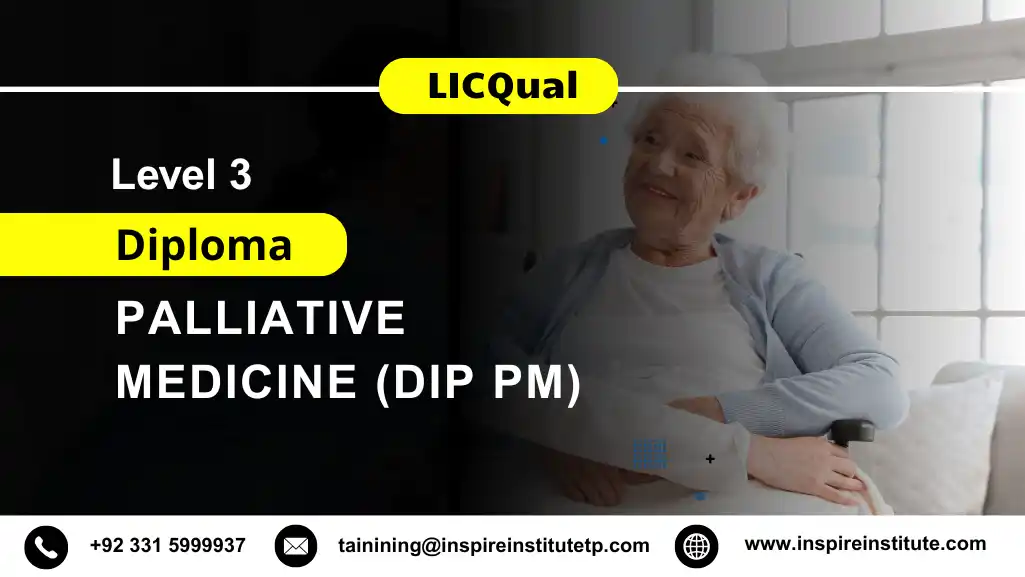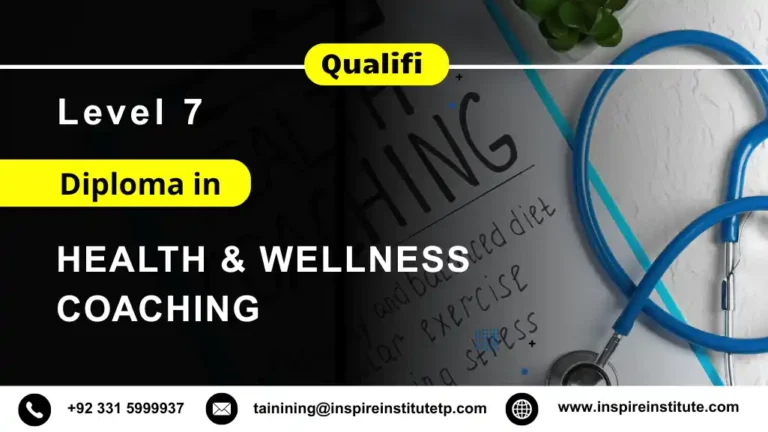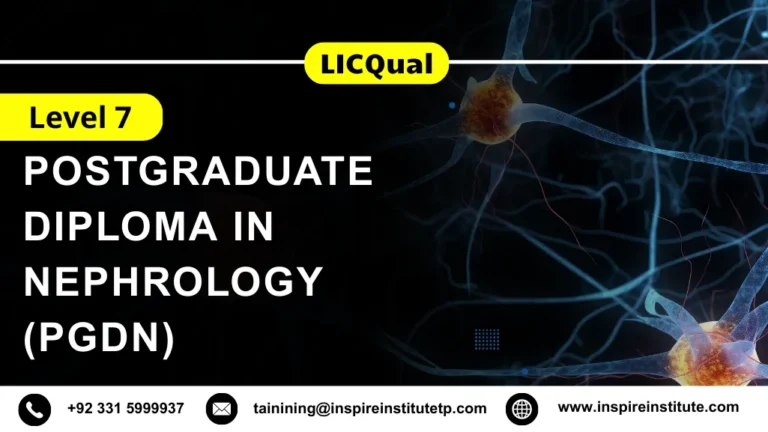LICQual Level 3 Diploma in Palliative Medicine (Dip PM)
The LICQual Level 3 Diploma in Palliative Medicine (Dip PM) is a UK-accredited programme that addresses one of the most vital areas in modern healthcare—compassionate and effective end-of-life care. With the rising global demand for skilled professionals in palliative medicine, this diploma equips learners with the advanced knowledge, clinical understanding, and empathetic approach required to support patients with life-limiting illnesses.
This comprehensive course explores essential concepts in palliative care, including pain management, symptom control, psychosocial support, and holistic patient-centered approaches. Learners develop the ability to provide dignified care that respects patient autonomy, improves quality of life, and supports families through complex emotional and medical challenges.
The LICQual Level 3 Diploma in Palliative Medicine blends theoretical foundations with real-world applications, making it suitable for doctors, nurses, allied health professionals, and caregivers committed to enhancing patient well-being. By engaging with evidence-based practices, students gain expertise in integrating medical, ethical, and cultural considerations into palliative care strategies.
Through this assignment-based qualification, learners build critical skills in communication, ethical decision-making, and interdisciplinary collaboration. These competencies are crucial in managing pain, reducing distress, and providing emotional and spiritual support in both clinical and community settings. The flexible format of the diploma ensures that healthcare professionals can advance their education while continuing to serve patients.
Graduates of this programme will be well-prepared for roles in hospitals, hospices, palliative care units, and community healthcare services. A UK-recognised qualification in palliative medicine enhances employability, credibility, and career progression, offering opportunities in patient care, healthcare education, and leadership.
The LICQual Level 3 Diploma in Palliative Medicine (Dip PM) empowers healthcare professionals to deliver compassionate, evidence-based care to patients at the most vulnerable stages of life. It is an essential qualification for those seeking to make a meaningful impact in palliative care while advancing their professional careers.
Why Choose this Qualification
The LICQual Level 3 Diploma in Palliative Medicine (Dip PM) is a UK-accredited qualification designed for healthcare professionals, caregivers, and community practitioners seeking to enhance their expertise in end-of-life care, symptom management, and patient support. This course combines advanced theoretical learning with practical applications, enabling learners to understand palliative medicine principles, pain relief strategies, psychosocial care, and holistic approaches essential in improving quality of life for patients with life-limiting conditions. Designed as an assignment-based programme, it provides flexibility for professionals balancing clinical responsibilities with further education.
Key Reasons to Choose this Qualification:
Specialist Knowledge: Gain a comprehensive understanding of palliative medicine, including pain and symptom management, ethical decision-making, end-of-life communication, and psychosocial support. Learn evidence-based approaches to holistic care, spiritual well-being, and family counseling, equipping professionals to deliver compassionate and effective patient care.
Practical Application: Develop competence in managing complex symptoms, creating patient-centered care plans, supporting families, and applying ethical frameworks in difficult clinical decisions. Learners also gain skills in communication, bereavement support, and multidisciplinary collaboration to ensure dignity and comfort in palliative care delivery.
UK-Accredited Diploma: Earn a UK-recognised qualification that validates expertise in palliative medicine and strengthens professional credibility. Accreditation ensures alignment with international healthcare standards, making this diploma valuable for doctors, nurses, allied health professionals, caregivers, and healthcare educators worldwide.
Flexible Learning Pathway: Benefit from an assignment-based structure that allows learners to progress at their own pace while continuing to work in hospitals, hospices, or community healthcare settings. This flexible format supports busy professionals seeking academic advancement without disrupting patient care.
Evidence-Based Training: Explore the latest research, clinical guidelines, and best practices in palliative medicine. The programme emphasises safe and effective pain management, patient dignity, ethical responsibility, and holistic approaches that integrate medical, psychological, and social care.
Career Development: Expand career opportunities in hospitals, hospices, community health services, NGOs, and healthcare education. The LICQual Level 3 Diploma in Palliative Medicine equips learners with the expertise to provide high-quality palliative care, contribute to healthcare improvement, and advance within specialist or leadership roles.
The LICQual Level 3 Diploma in Palliative Medicine (Dip PM) empowers professionals with the knowledge, skills, and UK-accredited recognition necessary to deliver compassionate, evidence-based care to patients with life-limiting illnesses. It is an essential qualification for those committed to advancing their careers while making a meaningful impact on patient comfort, dignity, and holistic well-being.
Course Overview
LICQual UK Awarding Body
Average Completion Time:
4-12 Months
Study Units: 6 Units
Evidence & Assignment Based
Mandatory Units
Who Should Take This Course
The LICQual Level 3 Diploma in Palliative Medicine (Dip PM) is a UK-accredited qualification designed for healthcare professionals who wish to develop advanced knowledge and practical skills in end-of-life care, symptom management, and holistic patient support. This course is ideal for practitioners aiming to enhance the quality of life for patients with life-limiting illnesses, implement evidence-based interventions, and progress within the specialised field of palliative medicine. It equips learners with in-depth theoretical insights and practical approaches to pain relief, psychosocial support, ethical decision-making, and family-centered care, supporting both professional growth and improved standards of care in clinical and community settings.
This course is suitable for:
Nurses and Care Practitioners: Professionals seeking to strengthen their expertise in providing compassionate, patient-centered end-of-life care, including symptom control, palliative interventions, and family support.
General Practitioners and Physicians: Clinicians wishing to deepen their understanding of palliative medicine, ethical frameworks, and multidisciplinary approaches to optimise comfort and dignity for patients facing life-limiting conditions.
Aspiring Palliative Care Specialists: Healthcare professionals preparing for higher-level qualifications or specialist pathways in palliative medicine, oncology, or hospice care who want to establish a strong academic and clinical foundation.
Hospice and Community Health Workers: Individuals aiming to develop competencies in delivering palliative care in hospitals, hospices, or community-based healthcare settings, ensuring patients and families receive holistic support.
Healthcare Educators and Trainers: Professionals interested in advancing their knowledge of palliative medicine to support teaching, training, or research within healthcare and palliative care education.
Healthcare-Oriented Learners: Individuals with a professional interest in end-of-life care who wish to understand the principles of palliative medicine, symptom management, and the importance of dignity and compassion in patient care.
The LICQual Level 3 Diploma in Palliative Medicine (Dip PM) is particularly valuable for healthcare professionals seeking to specialise in end-of-life care, strengthen their clinical expertise, and achieve a UK-accredited qualification. By combining evidence-based learning with practical application, this diploma supports career progression, professional recognition, and the ability to meet the growing demand for skilled palliative care practitioners in modern healthcare.
Course Benefits
The LICQual Level 3 Diploma in Palliative Medicine (Dip PM) provides significant benefits for healthcare professionals seeking to strengthen their expertise in palliative care, end-of-life management, and holistic patient support. By combining advanced theoretical knowledge with practical application, this diploma equips learners to provide compassionate care, implement evidence-based interventions, and enhance the quality of life for patients with life-limiting conditions. Designed as a flexible, assignment-based programme, it supports professional development while maintaining academic excellence and relevance in modern healthcare systems.
Key Benefits of the Course:
- Specialist Knowledge: Gain an in-depth understanding of palliative medicine principles, pain and symptom management, ethical decision-making, and psychosocial support. Learners explore holistic patient care, family-centered approaches, and multidisciplinary practices that uphold dignity and compassion in healthcare.
- Practical Application: Develop competence in managing complex symptoms, supporting patients and families, and applying evidence-based practices in hospice, hospital, and community settings. Learners also gain skills in communication, ethical care delivery, and integrating palliative care within broader healthcare frameworks.
- Recognised Qualification: Earn a UK-accredited diploma that validates advanced expertise in palliative medicine and enhances professional credibility. Accreditation ensures alignment with global palliative care standards, making this qualification highly valued in clinical, community, and hospice-based roles.
- Flexible Learning Pathway: Benefit from an assignment-based study format that enables learners to progress academically while balancing professional responsibilities. This flexibility is particularly valuable for healthcare professionals and caregivers seeking advanced training without disrupting their clinical roles.
- Evidence-Based Training: Explore the latest research, palliative care models, and international best practices, ensuring safe, compassionate, and effective care. Learners are trained to apply scientific knowledge, ethical frameworks, and person-centered approaches to complex patient scenarios.
- Career Development: Expand career opportunities in hospitals, hospices, palliative care units, NGOs, and international health organisations. This qualification opens pathways to roles in palliative medicine, end-of-life care, clinical leadership, and healthcare education.
- Enhanced Patient & Family Support: Contribute to improved quality of life for patients through effective symptom management, holistic support, and compassionate communication. Learners play a key role in helping families navigate the emotional, ethical, and practical challenges of end-of-life care.
- Professional Growth: Strengthen clinical judgment, ethical reasoning, and multidisciplinary collaboration. This diploma prepares healthcare professionals to play an influential role in shaping palliative care practices and raising standards of care in diverse healthcare environments.
The LICQual Level 3 Diploma in Palliative Medicine (Dip PM) equips learners with essential knowledge, practical expertise, and a UK-recognised qualification. It empowers healthcare professionals to deliver compassionate care, enhance patient and family well-being, and advance their careers in the specialised field of palliative medicine.
Eligibility Criteria
The LICQual Level 3 Diploma in Palliative Medicine (Dip PM) is a UK-accredited programme designed for healthcare professionals and practitioners who wish to develop advanced knowledge and practical skills in palliative care, end-of-life management, and holistic patient support. This assignment-based qualification is ideally suited for doctors, nurses, allied health professionals, hospice workers, and caregivers seeking to enhance their ability to provide compassionate, evidence-based care to patients with life-limiting conditions. By meeting the entry requirements, learners ensure they are well-prepared to succeed in the programme and apply their expertise effectively in clinical, hospice, and community healthcare settings.
Educational Background:
Applicants must hold a recognised healthcare or science-related qualification such as a degree or diploma in medicine, nursing, healthcare practice, or an equivalent qualification. Those with Level 2 or Level 3 qualifications in healthcare, caregiving, or related disciplines may also be considered. International qualifications will be assessed on a case-by-case basis to confirm their suitability for the programme.
Professional Experience:
A minimum of one year of experience in healthcare, hospice care, or palliative care-related services is recommended. Prior involvement in patient care, end-of-life support, or symptom management is advantageous. However, motivated healthcare professionals and caregivers without direct palliative medicine experience may also apply if they demonstrate commitment to the field.
Age Requirement:
Learners must be at least 18 years old at the time of enrolment to ensure professional maturity, responsibility, and the emotional readiness required for advanced training in palliative care.
Language Proficiency:
As the programme is delivered in English, applicants should demonstrate competency in reading, writing, and communication. A minimum IELTS score of 6.0 or an equivalent qualification is recommended for non-native English speakers to ensure they can successfully complete assignments and fully engage with course content.
Technical Requirements:
Applicants should have access to a computer or laptop with a stable internet connection, along with basic IT skills to manage online learning resources, conduct research, and submit assignments digitally.
Required Documents:
Applicants must provide a valid ID or passport, evidence of educational qualifications, and proof of professional experience (if applicable). For candidates with international qualifications, additional documentation may be required to verify equivalency and eligibility.
The Qualification Process
LICQual Level 3 Diploma in Palliative Medicine (Dip PM) follows a structured pathway to ensure learners gain comprehensive knowledge, practical skills, and professional competence in community oral healthcare.
Step 1: Self-Assessment
Learners review the entry requirements to confirm eligibility. Candidates with a background in dentistry, oral health, or public health are encouraged to apply.
Step 2: Registration
Complete the registration process by submitting required documents such as proof of qualifications, a valid ID, and payment of enrollment fees.
Step 3: Induction
An induction session is conducted to:
- Verify learner eligibility and documentation.
- Introduce study materials, learning outcomes, and assessment procedures.
Step 4: Learning and Evidence Submission
Learners complete assignments, case studies, and practical exercises demonstrating competence in public health dentistry, community oral health assessment, preventive strategies, and program planning.
Step 5: Feedback and Revision
Assessors review submitted evidence and provide constructive feedback. Learners can revise and resubmit work to meet all required standards.
Step 6: Competence Validation
Final submissions are evaluated to confirm that learners have met all theoretical and practical learning outcomes.
Step 7: Internal Quality Assurance (IQA)
The IQA team reviews the assessment process to ensure accuracy, fairness, and compliance with international standards.
Step 8: External Verification (EQA)
External verifiers validate the authenticity and quality of learner achievements.
Step 9: Certification
Upon successful verification, learners are awardedLICQual Level 3 Diploma in Palliative Medicine (Dip PM) , demonstrating advanced proficiency in community oral healthcare and preparing them for professional growth in dental public health, preventive dentistry, and healthcare policy.







